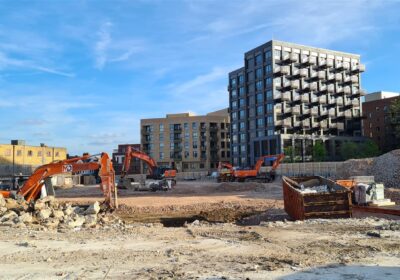I attended the Centre for London Housing summit last Wednesday. It was a good conference where London’s public estate comes together. The morning session entitled optimistically What’s Working had some fantastic representation from community land trusts in the shape of the cerebral Anurag Verma. Unfortunately, it was peppered with references to rent control and the need for significant intervention rather than how we can find ways of unlocking new supply.
Whilst there is no consensus as to what we really mean by rent control, it increasingly feels this is a default ask by London policy makers. This is a mistake. First, we need to fix supply and make supply sustainable. CBRE’s London Housing Report published this month shows planning permissions are down 60% in London from previous peaks with construction completions at their lowest since 2015. We have not reached the bottom yet.
Institutional capital is not coming to London. If it was, permissions wouldn’t be falling. The public estate does not have the capital to build the homes this city needs. We need to ask the fundamental question, what is preventing capital from unlocking homes. The answer is the maths doesn’t work.
Moreover, many investors do not consider the UK a great place to invest. We have witnessed Brexit and then we have seen the Government retrospectively amend law through the Building Safety Act. Michael Gove recently tried to abolish existing ground rents. Rights or wrongs aside, if you change laws which have been the basis for historic investments, you move up the risk curve for capital. Rent control will be perceived as a trojan horse. Perhaps London starts moderately but it gives the public estate the precedent to then go further down the line, particularly if it does not arrest the problem of affordability.
There are variations of rent control in different countries. However, it’s not going to make London more affordable. We have an unaffordable city with constrained supply. The more new supply falls, the more expensive rents will get. Introducing rent control isn’t going to change this unless people think the Government is going intervene and mandate the private sector to reduce rents by a flat 20 or 30% on market value and witness capital haemorrhage out of our cities. So rent control is not the answer. Finding ways of unlocking supply must be our focus.









